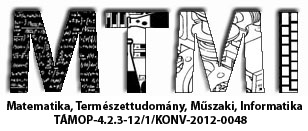Modulatory Effects of Ginseng Extracts on Human Immune Responses.
Despite being used as an herbal remedy for thousands of years, the immunomodulatory effects of ginseng remain uncertain. This is because most of the studies to date have used neoplastic cell lines whose results cannot be extrapolated to normal human immune cells. Therefore, the goal of our project is to characterize the effects of American ginseng (Panax quinquefollius) extracts on the innate and adaptive immune responses of normal human peripheral blood mononuclear cells (PBMCs) (monocytes, B cells, T cells). Our hypothesis is that ginseng has immunomodulatory effects by itself and on the profile of cytokine production in response to pathogen-associated molecular patterns [endotoxin (LPS)] and toxins [staphylococcal superantigens (SAgs)] and activates different signaling pathways. To test this hypothesis we measured the production of cytokines and reactive oxygen species (ROS) by PBMCs in response to ethanol, aqueous and polysaccharide extracts of ginseng alone or in combination with LPS or Sags. Also the MAP Kinase pathway was studied using Western blot. We found that ginseng extracts by themselves induced production of IL-6, TNFalfa and IL-10 by PBMCs with the aqueous fraction being more potent than the crude polysaccharide fraction and the ethanol fraction. In addition, the aqueous fraction triggered IL-1beta production. Such a response was similar for aqueous extracts from 4 out of 5 different sources. Induction of cytokines by ginseng extracts enhanced the proinflammatory innate response to LPS. However, IL-2 production to SAgs (an adaptive response) was downregulated. In addition, ginseng aqueous fractions induced the production of ROS by monocytes. All of the ginseng extracts stimulated the phosphorylation of ERK1/2 in a concentration and time dependent manner. Based on these results, we conclude that North-American ginseng, and in particular its aqueous fraction, has immunomodulatory properties, enhancing innate immune responses while downregulating adaptive immune responses.
Támogatók: Támogatók: Az NTP-TDK-14-0007 számú, A Debreceni Egyetem ÁOK TDK tevékenység népszerűsítése helyi konferencia keretében, az NTP-TDK-14-0006 számú, A Debreceni Egyetem Népegészségügyi Karán folyó Tudományos Diákköri kutatások támogatása, NTP-HHTDK-15-0011-es A Debreceni Egyetem ÁOK TDK tevékenység népszerűsítése 2016. évi helyi konferencia keretében, valamint a NTP-HHTDK-15-0057-es számú, A Debreceni Egyetem Népegészségügyi Karán folyó Tudományos Diákköri kutatások támogatása című pályázatokhoz kapcsolódóan az Emberi Erőforrás Támogatáskezelő, az Emberi Erőforrások Minisztériuma, az Oktatáskutató és Fejlesztő Intézet és a Nemzeti Tehetség Program



